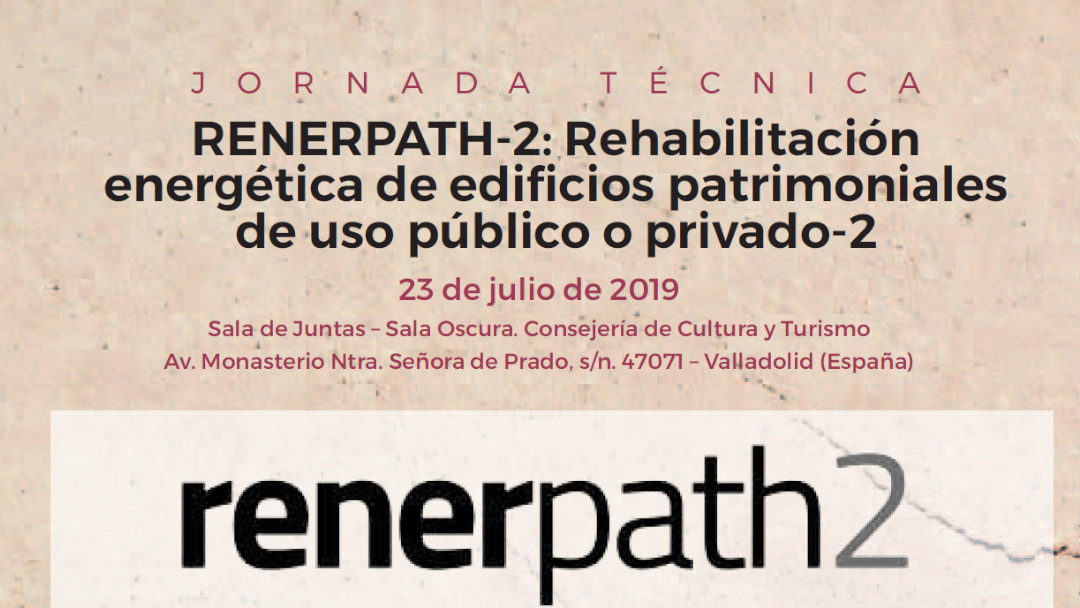Next Tuesday, July 23 the Ministry of Culture and Tourism of Valladolid will host a technical conference of the international project RENERPATH 2. This initiative, coordinated by the CARTIF Technology Center and developed thanks to the collaboration between research teams of Spain and Portugal, seek to establish a specific European pre-regulation for the energy rehabilitation of heritage buildings. The event will expose the key points of the project and the progress made in its framework of action to date.
In the first place, María Calvo Bartolomé, from the General Directorate of Cultural Heritage of the Junta de Castilla y León, and Pedro Martín Lerones, director of the Heritage Area of CARTIF, will welcome the attendees with the presentation of the event and the explanation of the project. Afterwards, María Jesús González Díaz, an expert in Architecture and Sustainability, will offer a brief presentation on architecture, sustainability and energy efficiency of Heritage in the European context.
The culmination of the event will come with a series of practical cases related to RENERPATH 2. At this point, Francisco Rodriguez Llamazares, abbot of the Cabildo de la Real Colegiata Basílica de San Isidoro, and Santiago Diez Castilla, of the Regional Institution of Energy in Castilla y León (Castilla y León Regional Government), will present the Regional Plan of Sectorial Sector of Bioenergy of Castilla y León 2011-2020 and the methodology of action in two buildings of high heritage value such as the Basílica de San Isidoro (León) and the Monastery of Sta. María de Valbuena (Valladolid). Likewise, the CARTIF researcher Ana López Vidal, will perform an analysis of the application and results of the energy rehabilitation methodology of heritage buildings within the framework of the project. Finally, a debate will take place among the experts in the field present.
RENERPATH 2 project will continue the methodology obtained in the former project RENERPATH. This methodology will be applied to a group of representative buildings located in the Spanish region of Castilla y León and in the North and Centre of Portugal, aiming for its optimization and generalization, which would lead to the desired pre-normative.
The consortium is made up of the Spanish partners: CARTIF (coordinator), the Directorate General of Cultural Heritage of the Regional Government of Castile y León, the Regional Entity of the Energy of Castile and León (EREN) and the Ciudad Rodrigo 2006 Foundation. And the Portuguese partners: the Direção Regional de Cultura do Norte, the Agência Regional de Energia e Ambiente do Interior (ENERAREA) and the Centro Tecnológico da Cerâmica e do Vidro (CTCV).
This Project is being funded by the European Regional Development Fund (ERDF), via Interreg V-A Spain-Portugal (POCTEP) 2014-2020 program.
